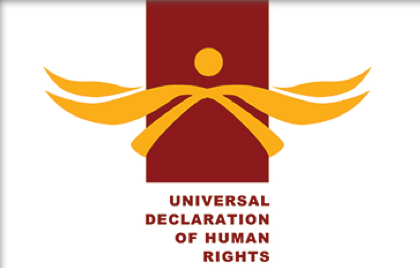cross-posted from: https://links.hackliberty.org/post/38945
Question about #humanRights— Article 20 of the #UDHR¹ states:
“① Everyone has the right to freedom of peaceful assembly and association.
② No one may be compelled to belong to an association.”
How does that apply in the context of forced banking? If a government forces you to enter the marketplace and register for a bank account, does that qualify as being compelled to belong to an association?
¹UDHR: Universal Declaration of Human Rights
#askFedi


Seems that case requires it for such engagements, but doesn’t mandate it? If it can be refused freely, seems that would not violate?
When “such engagement” is required to exercise human rights, I’m not as quick as you to call that optional. I expect to have all of my human rights simultaneously satisfied together in aggregate.
A mandate can be explicitly written or merely implied. If you need food to survive, for example, and a law were to say all food distributors must refuse cash, you can safely call that an implied mandate to use a bank. Or would you say they are off the hook for the human rights consequences, perhaps on the basis that people can freely refuse to buy food and opt to grow their own food?
art.4 & art.23 (employment)
Are you suggesting that the ban on cash wages is not a banking mandate because it’s an “engagement”, despite exercise of human rights articles relying on that engagement? Consider that art.4 entitles people to be free from slavery and couple that with art.23 which states: “Everyone has the right to work, to free choice of employment”. In Belgium, it is illegal for an engineer to receive cash wages. But it is not illegal for a domestic worker to receive cash wages if that has been established as a common practice in that trade.
Do you see the issue? An unbanked engineer can freely refuse to work and live on welfare (if offered by their gov assuming no disqualifying requirements due to their ability to work), but then they must give up their rights under art.23. And even then, how do they get their welfare payment? See below.
art.25 (housing & social svcs)
Consider that no real estate transaction can involve cash, by law. Yet, art.25 states:
I highlighted social services as well as housing because social services in some countries refuse to pay cash to beneficiaries. You cannot get financial aid without a bank account.
Regarding utilities, is that also what you consider to be an optional engagement? That people do not need water and power service? This may be debatable but I believe the right to housing likely includes a right to energy in regions where a box with walls+roof is insufficient to prevent freezing. I believe housing implies having a warm space. So when the energy supplier refuses cash, is that not a mandate to use a bank? If you are wondering where the gov comes into play in this case, it would be when the utility supplier refuses cash then sues the unbanked consumer in court for non-payment. When the court finds the energy contract to be “legal” and sides with the utility company, that’d essentially be a case of the gov mandating the use of banks.
It’s also worth noting that the UDHR is not limited to govs. The private sector is also bound by the UDHR.
Anyway, this is all quite far off from the original question in the OP, which remains unanswered.
(edit) And what about tax?
Some govs require taxes to be paid electronically. Tax is by definition a mandate. Both income tax and property tax must be paid electronically. There was a guy in Germany to was denied the option to pay his radio licensing fees in cash. IIUC, that’s like BBC, a mandatory tax. You could perhaps argue that income tax is optional because income is optional, and that property tax is optional because home ownership is optional, but I’m not sure the same can be said for radio fees in Germany.
Yes, for cases like you are illustrating here, seems to me that is forcing some association as you argue. Then again, it doesn’t force a /specific/ association, as long as there is a free marketplace for banking with real options. However, even then it does still make a compulsory partition in that way.
Hmm, now that I think of it, in USA the supply of cash flows from banks and thus supply of cash, whether directly or indirectly, requires some association with them too… the alternatives seem to be barter, scrip, etc. But if it’s illegal to freely trade directly between suppliers and the needful for basic necessities, that does at least seem objectionable.
I’m also thinking about “banking hours”/bank requirements constraining the ability of even bank account holders to garner those necessities freely.